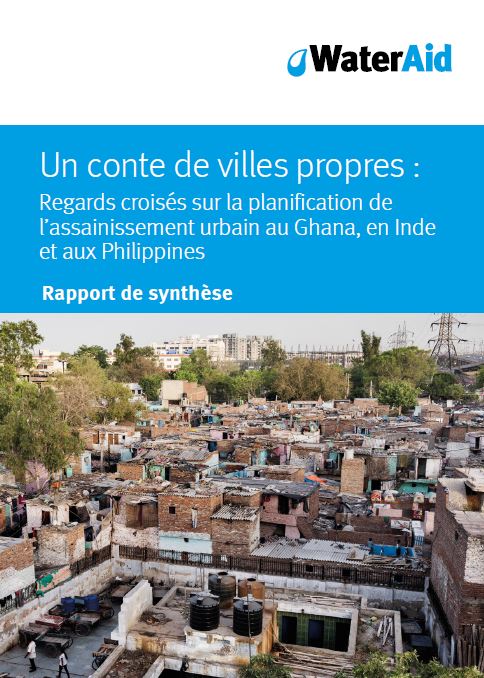A tale of clean cities: insights for planning urban sanitation from Ghana, India and the Philippines
 |
Un conte de villes propres : Regards croisés sur la planification de l'assainissement urbain au Ghana, en Inde et aux Philippines
rapport Aug 2016
Ed. WaterAid - London
Téléchargeable sous format: PdF
Téléchargeable chez l'éditeur
Page de présentation d'un éditeur
Abstract:
Uncontrolled urbanisation and proliferation of slums makes development of urban sanitation a big challenge. To contribute to the efforts towards the Sustainable Development Goal (SDG) target of universal access to sanitation, the research A tale of clean cities aimed to learn from three cities that are performing well in sanitation: Kumasi, Ghana; San Fernando, the Philippines; and Visakhapatnam, India.
Findings showed substantial but uneven progress along segments of the sanitation chain, and that the urban poor and those who live in challenging areas are being left behind. Common drivers of progress were: sanitation champions at the municipal level; national political influence; economic considerations; and support from development partners. Progress resulted from emerging opportunities; city sanitation planning was not a key determinant.
However, planning exercises did make meaningful contributions, such as forging an aspirational vision of a clean city. These positive contributions were diverse, dependent on the level of development of sanitation in the city. The research suggests this development could be structured into three phases: piloting; consolidation; and city-wide expansion. Approaches to city sanitation planning could be tailored to these phases and to political opportunities to maximise their contribution.
Public-Cible:
Mots clefs: |
assainissement (CI) (DT) (OP) (ope) , urbain (CI) (DT) (OP) (ope) |
Pays concernés: |
Ghana (CI) (DT) (OP) , Inde (CI) (DT) (OP) , Philippines (CI) (DT) (OP) |
Editeur/Diffuseur: |
|
WaterAid - London - Royaume Uni |
En cas de lien brisé, nous le mentionner à communication@pseau.org